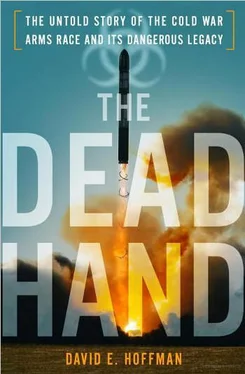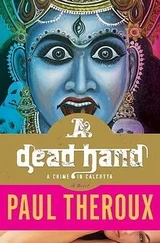50 Frank von Hippel, “Contributions of Arms Control Physicists to the End of the Cold War,” Physics and Society , vol. 25, no. 2, April 1996, pp. 1, 9–10. The conference was part of the Niels Bohr Centennial celebration, Sept. 27–29, 1985.
51 Of three proposals considered, Cochran said NRDC’s was accepted because the group could move quickly. The agreement was signed May 28 between Velikhov and Adrian DeWind, chairman of the NRDC. Cochran, communication with author, July 9, 2008; von Hippel, Citizen Scientist , pp. 91–92.
52 Cochran had asked Charles Archambeau, a theoretical seismologist at the University of Colorado, to help organize the seismologists and equipment. Archambeau recruited John Berger, Institute of Geophysics and Planetary Physics, Scripps Institution of Oceanography, University of California, San Diego, La Jolla, California, to organize the team to man the Soviet and U.S. installations and identify and order the needed equipment. Archambeau and Berger recruited James N. Brune from the University of Nevada and several others.
53 Natural Resources Defense Council, “Nuclear Test Ban Verification Project,” Status Report, November 1986; and Thomas B. Cochran, The NRDC/Soviet Academy of Sciences Joint Nuclear Test Ban Verification Project , Physics and Global Security, vol. 16, no. 3, July 1987, pp. 5–8.
54 Cochran, communication with author, July 8, 2008. The Soviet documents are at Katayev, Hoover.
55 The Central Committee approval was July 9 as Cochran and his team were just arriving on the site. Katayev, Hoover.
56 Chernyaev, pp. 77–78.
57 Gorbachev letter to Reagan, Sept. 15, 1986, RRPL.
58 Reagan diary, Sept. 19, 1986.
59 Chernyaev notes from the Politburo session, Sept. 22, 1986. See The Reykjavik File: Previously Secret Documents from U.S. and Soviet Archives on the 1986 Reagan-Gorbachev Summit , TNSA EBB 203, doc. 3.
60 Chernyaev, pp. 79–84. Also see David Holloway, “The Soviet Preparation for Reykjavik: Four Documents,” in the conference report Implications of the Reykjavik Summit on Its Twentieth Anniversary (Stanford: Hoover Institution Press, 2007), pp. 45–95.
61 Chernyaev, p. 81.
62 “Talking Points,” three pp., John Poindexter to the President, no date, RRPL, document no. 9155, Box 90907, European and Soviet Affairs Directorate, NSC.
63 Two sets of notes of the Reykjavik discussions were used for this account. While there are some differences, they largely agree on the substance of what was said. The United States notes are summaries and have been declassified by the State Department; see TNSA, EBB No. 203. The Soviet notes are more detailed, in the form of transcripted speech, and were published in four installments in 1993 by the journal Mirovaya Ekonomika I Mezhdurnarodnyye Otnosheniya and translated by FBIS.
64 The U.S. team was led by Nitze, and the Soviet team by Akhromeyev. See Strobe Talbott, The Master of the Game: Paul Nitze and the Nuclear Peace (New York: Knopf, 1988), pp. 317–322.
65 Shultz, p. 763.
66 Reagan, An American Life , p. 677.
67 This account of the final dialogue is from Shultz, and Reagan gives a similar account. However, Gorbachev said Reagan reproached him, “You planned from the start to come here and put me in this situation!” Gorbachev recalls he replied he was prepared to go back inside and sign a comprehensive arms control document “if you drop your plans to militarize space.” He quotes Reagan as responding, “I am really sorry.” Gorbachev, Memoirs , p. 419.
68 Reagan diary, Oct. 12, 1986.
69 Gorbachev press conference, Oct. 14, 1986, BBC Summary of World Broadcasts, SU/8389/A1/1.
CHAPTER 12: FAREWELL TO ARMS
1 Svetlana Savranskaya and Thomas Blanton, eds., “The Reykjavik File,” TNSA EBB 203, doc. 19.
2 TNSA EBB 203, doc. 21.
3 Anatoly Chernyaev, My Six Years with Gorbachev (University Park, Pa.: University of Pennsylvania Press, 2000), p. 87.
4 Gorbachev needed to raise prices that had long been set artificially low, but he could not bring himself to do it. Stable prices were part of the social compact with the population that went back to the late 1950s and early 1960s. Yegor Gaidar, Collapse of an Empire: Lessons for Modern Russia (Washington, D.C.: Brookings Institution, 2007), pp. 122–139.
5 Politburo instruction No. P34/I to the Ministry of Defense, Oct. 14, 1986, as referenced in an excerpt from Protocol No. 66 of the Politburo meeting, May 19, 1987. Katayev, Hoover.
6 Sergei Akhromeyev and Georgi M. Kornienko, Glazami Marshala i Diplomata (Moscow: International Relations, 1992), pp. 124–126.
7 Gorbachev broadcast on Soviet television, Oct. 22, 1982, BBC Summary of World Broadcasts, SU/8398/A1/1.
8 In his televised address from the Oval Office October 14, Reagan said, “We offered the complete elimination of all ballistic missiles—Soviet and American—from the face of the Earth by 1996.” He also described a 50 percent cut in other weapons along with elimination of the missiles.
9 Don Oberdorfer, From the Cold War to a New Era (Baltimore: Johns Hopkins University Press, 1998), p. 208. Crowe said in his memoir that he told Reagan the plan was “ill-advised,” but he does not quote directly from his presentation. William J. Crowe Jr., The Line of Fire: From Washington to the Gulf, the Politics and Battles of the New Military (New York: Simon & Schuster, 1993), pp. 266–269.
10 Reagan diary, Oct. 27, 1986.
11 TNSA EBB 203, doc. 23.
12 The arrival of Stinger shoulder-fired antiaircraft weapons to the U.S.-backed Afghan resistance in September marked a turning point in the six-year-old war. Congress pumped $470 million in secret aid to the fighters in fiscal year 1986 and increased that to $630 million the next year. Steve Coll, Ghost Wars (New York: Penguin Books, 2004), pp. 149, 151.
13 Chernyaev, p. 95.
14 Reagan, who earlier adhered to the SALT II limits, decided that the United States would no longer do so, and the United States broke through in late November 1986.
15 This was a reference to Marshal Nikolai Ogarkov, who was removed as chief of the General Staff in September 1984 but at the time remained in the defense ministry and continued to be outspoken about the need to provide advanced technology to the military.
16 The radar issue was first raised by the United States in 1983; Gates was repeating the charge.
17 William M. Welch, “Soviets Have Far Outspent U.S. on Nuclear Defense, CIA Says,” AP, Nov. 25, 1985. The spravka is in Katayev, Hoover.
18 Sakharov said February 15, “A significant cut in ICBMs and medium-range and battlefield missiles, and other agreements on disarmament, should be negotiated as soon as possible, independently of SDI… I believe that a compromise on SDI can be reached later.” Sakharov, Moscow and Beyond (New York: Knopf, 1991), p. 21.
19 See “The INF Treaty and the Washington Summit: 20 Years Later,” TNSA EBB No. 238.
20 Podvig, Russian Strategic Nuclear Forces (Cambridge: MIT Press, 2001), pp. 224–226. Gorbachev, Memoirs , pp. 443–444.
21 Katayev’s account is drawn from his memoir; a lengthy monograph, “Structure, Preparation and Application of Decisions in Political-Military Problems in the Soviet Union;” and a monograph on civil-military relations.
22 Chernyaev, p. 103, n 4.
23 Margaret Thatcher, The Downing Street Years (New York: HarperCollins, 1993), pp. 481–482.
24 Gorbachev, Zhizn’ i reformi , vol. 2, pp. 36–37. George Shultz, Turmoil and Triumph: My Years as Secretary of State (New York: Charles Scribner’s Sons, 1993), p. 890.
Читать дальше












